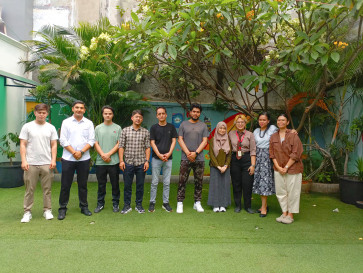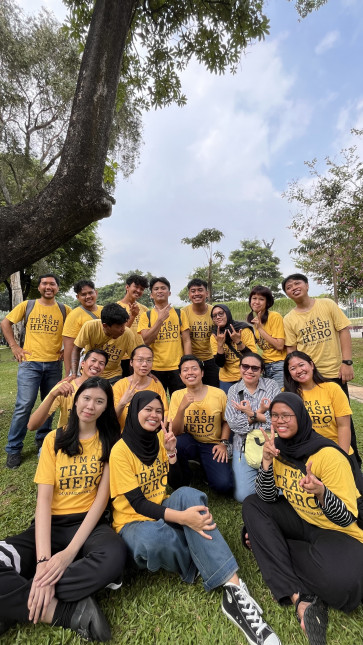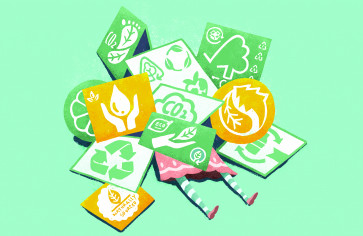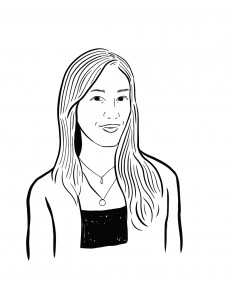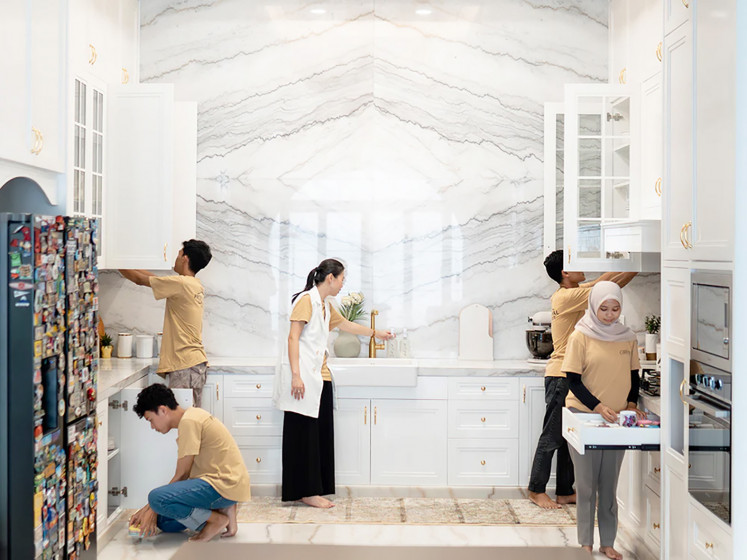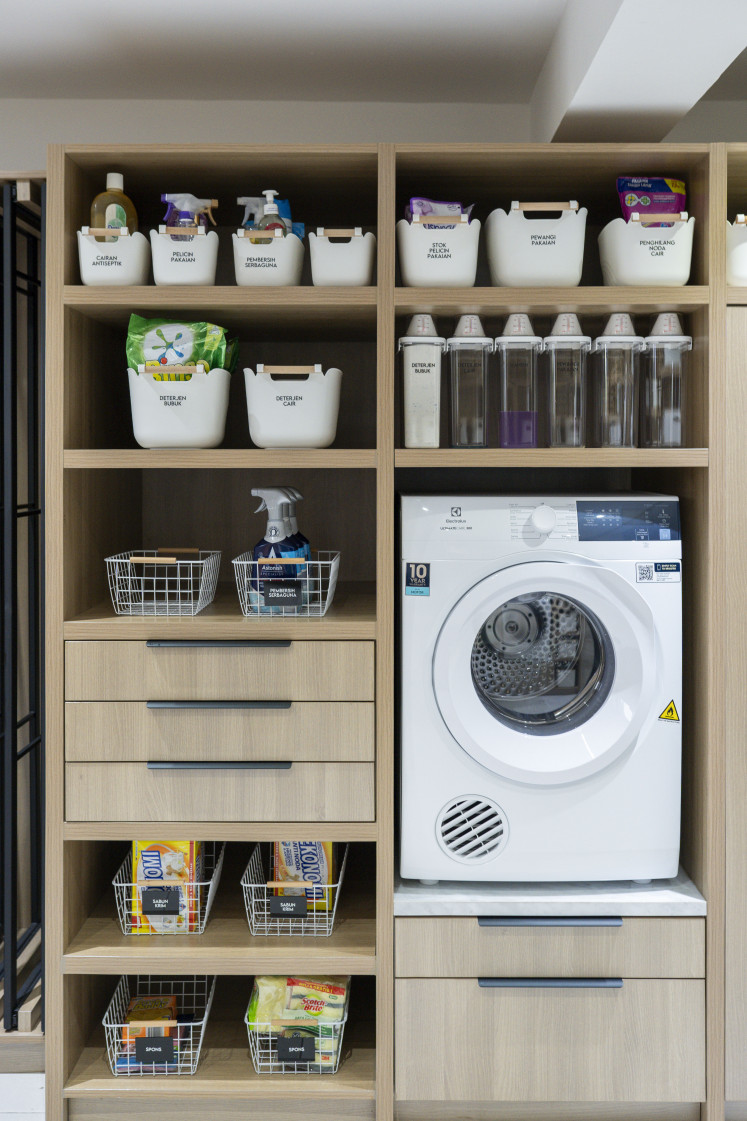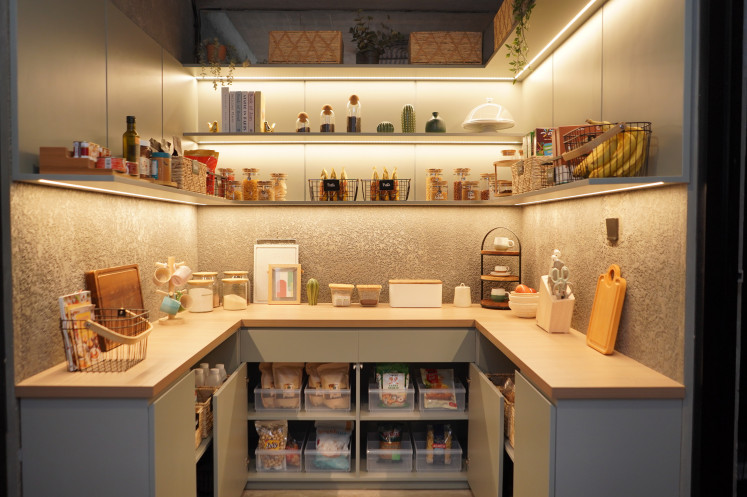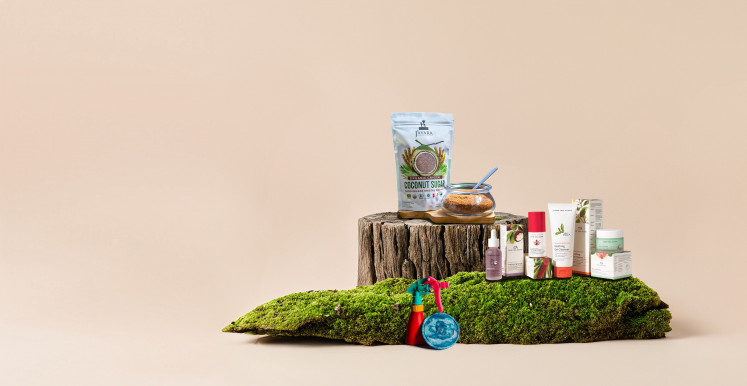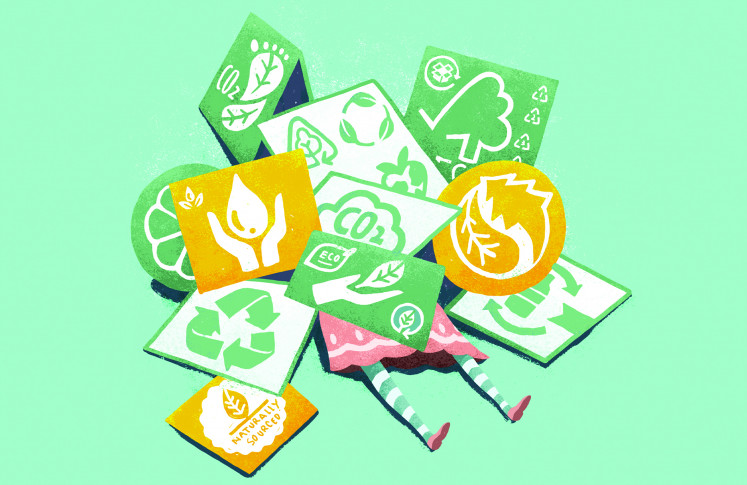How many times have you looked at the clutter around your home and thought, “I should really deal with this,” only to shove the thought aside for another day?
On the rare nights when I can’t sleep, I sometimes give in to the urge to reorganize my room and everything in it. The 3 a.m. decluttering labor always ends in an exhilarating euphoria: new room, new me.
But that kind of decluttering takes time, energy and the emotional bandwidth to face your stuff, maybe even your life. For many people, a sleepless night and good intentions won’t cut it. The mess feels too overwhelming, the decisions too personal.
That’s when they call in help. Professional help.
“Most people come to us when they feel overwhelmed and don’t know where or how to begin,” says Joandri Tuessy Mather, founder of Orugunaizu by JT.
Her clients span all kinds of transitions: marriage, divorce, moving house, downsizing or grieving a loss.

Thank you!
For signing up to our newsletter.
Please check your email for your newsletter subscription.
“These moments often prompt a desire for a fresh start,” she explains.
“Decluttering becomes part of that healing process.”
Sweeping the world
From Khloe Kardashian’s perfectly labeled pantry to Marie Kondo’s hit Netflix shows, Tidying Up with Marie Kondo and Sparking Joy with Marie Kondo, decluttering has swept the world.
“Being organized isn’t just about aesthetics, it’s a lifestyle shift,” Joandri says.
“When your space is organized, your daily routine becomes more efficient and intentional.”
Tiara Astari, director of Professional Organizer Indonesia (POI), echoes this. Routine decluttering, she says, can improve quality of life and stop us from living buried under things we never use.
Referring to Pareto’s 80/20 rule, she points out that most people only use 20 percent of what they own 80 percent of the time.
Hiring a professional organizer is not just a luxury, it’s a practical investment to improve quality of life. - Joandri Tuessy Mather
Tiara’s clients include public figures like Dian Sastro, Adinia Wirasti and Karin “Awkarin” Novilda. Many book the service at least once a year, as they regularly receive gifts and endorsements.
It’s no surprise that Chinese New Year, year-end and holiday seasons are the busiest, especially for clearing closet purges.
When to call in the professionals
Maria Widya of Grinn Living, a master consultant with more than 100 clients and 1,500 tidying hours under her belt, has spotted the pattern: Many clients are moving and need packing help. Most are people who simply don’t have time to tidy up themselves.
“Our client base is diverse, but many are mothers, businesswomen or busy professionals, often with children,” says Joandri.
But it’s not just about being busy. It’s also for people who can’t let go.
“There are also clients who call us for their parents,” she adds.
“Usually, parents find it very difficult to let go of things.”
The process always starts with a one-on-one session, beginning with the client’s easiest categories. The organizer’s job is to challenge gently and build trust.
If clients still want to keep certain items, that’s okay. The organizers will ask one last time, but in the end, to keep or toss is entirely up to the client.
. (Courtesy of grinnliving.com)
“What sets the KonMari method apart is that we tidy by category, like clothes, books and papers, rather than by location. We focus on what sparks joy,” says Joandri.
“Beyond just cleaning or organizing, professional organizers like myself design personalized systems and are trained to navigate the emotional side of letting go.”
For Maria Widya of Grinn Living, the biggest impact is creating a system of one’s own joy check.
“Most other organizing methods are all about throwing away a lot,” she says.
“But KonMari recommends only keeping items that support your lifestyle.”
The result? You live surrounded by things that actually matter.
A growing business
According to Coherent Market Insights, the professional organizer industry is now worth US$12.26 billion. And Infinity Business Insights (IBI) projects the global market will grow by about 6 percent annually until 2030.
North America leads with a 36 percent market share, but Asia Pacific is catching up fast.
Jakarta is part of this trend. Joandri became the first certified KonMari consultant in Indonesia in 2020 and opened Orugunaizu by JT two years later.
“The process required completing formal training, more than 30 hours of hands-on organizing practice, client documentation and a comprehensive exam,” she says.
Joandri also holds credentials from the United States-based National Association of Productivity and Organizing Professionals (NAPO).
. (Courtesy of Grinn Living)
Other local players like POI and Grinn Living began by selling tidy-up tools, drawer dividers, glass jars, boxes, before adding full KonMari services.
Tiara’s POI offered services just months after launching in 2019. Maria added them two years after opening in 2020. Now, Grinn Living books twice as many clients as when the service first launched.
An investment, not a luxury
Of course, hiring professionals comes at a cost.
POI charges from Rp 5.2 million ($320) per day for full service, while Grinn Living charges slightly less at Rp 4.45 million per day.
Orugunaizu by JT works hourly: Rp 2.45 million for three hours, Rp 4.38 million for six and Rp 850,000 per extra hour. The final fee depends on how much you have and how quickly you decide what stays or goes.
Yet despite the price tag, many clients keep coming back. Some schedule refresh sessions every few months to maintain and refine their systems. Joandri’s “Keep It Tidy” plan starts at Rp 650,000 for three hours.
. (Courtesy of POI)
“Hiring a professional organizer is not just a luxury, it’s a practical investment to improve quality of life,” Joandri says.
A decluttered home can change how you live. For Maria, it’s also a mental health check: A tidy space can lower stress and boost productivity.
“You’ll know where everything is, and you’ll appreciate what you have,” she says.
The biggest shift? Clients shop more mindfully and find it easier to say goodbye to clutter. It’s the opposite of retail therapy.
A tidier future?
While Maria and Tiara believe it took some time for Jakarta to catch the KonMari bug, locals are now paying attention.
“There’s strong and growing potential not just in Jakarta, but across other big cities in Indonesia,” says Joandri.
“People are realizing how much clutter affects their well-being. As awareness grows, I believe the organizing sector will expand.”
And what better time to start than now? If you need a little push, a pair of helping hands is always ready—just not at 3 a.m.
Sheena Suparman is a writer for The Jakarta Post's Creative Desk. She is based in Jakarta but wishes she could be anywhere else. She’s usually powered by coffee, chips and cheeseburgers.






